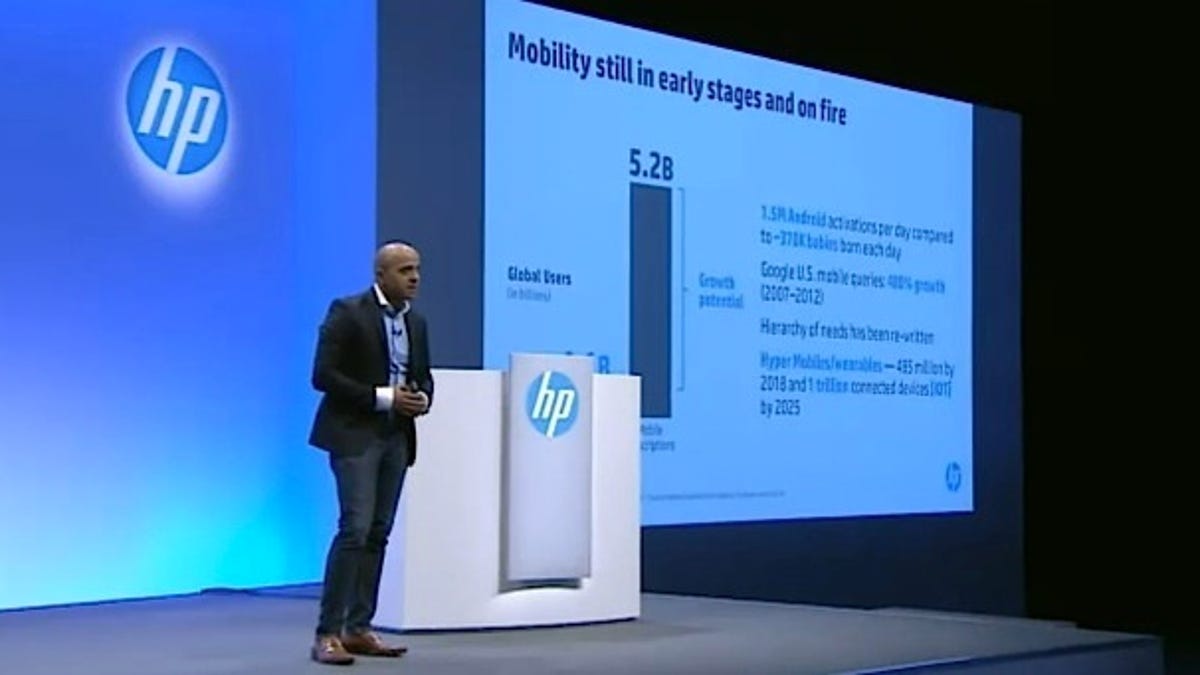HP exec paints bleak picture of Microsoft, Intel future
The future of computing won't favor Microsoft and Intel. That's the opinion of an HP executive speaking at a conference in Barcelona.

A Hewlett-Packard executive didn't pull punches when talking about a personal computing future that has less and less to do with Microsoft and Intel.
Sridhar Solur, director of Next Gen Computing and Cloud Services at HP, was speaking during a session Thursday (that was streamed live) at HP's Discover conference in Barcelona.
The session was titled "Internet of Things and wearables. Driving the next phase of growth in computing." According to Solur:
In 2012 there were 300 million-plus PCs that were shipped. The big players were Intel and Microsoft. Think about the business models of those companies [in] 2012. The year now is 2014. The total number of mobile devices shipped is 3 billion. That's a magnitude higher.
[And] look at the major players. You have ARM. Look at the business model difference between Intel and ARM. Look at the operating systems. In today's world, other than Microsoft there's no one else who charges for an operating system. It's vastly different.
The next wave of computing [will be in] 2016. You're talking about 30 billion connected devices. Look at who are the players. This is a total greenfield opportunity.
Both Microsoft and Intel are racing to address the brave new world of mobile computing.
Microsoft is rumored to be considering free versions of Windows Phone and RT, and Intel is now focused intently on mobile chips like its Quark, Bay Trail, and Merrifield processors.
But those two companies are pitted against an army of ARM ecosystem companies that include Qualcomm, Nvidia, Samsung, Google, and Apple.
And as Solur pointed out, the Internet of Things and wearables could tilt the future in favor of the ARM ecosystem.

